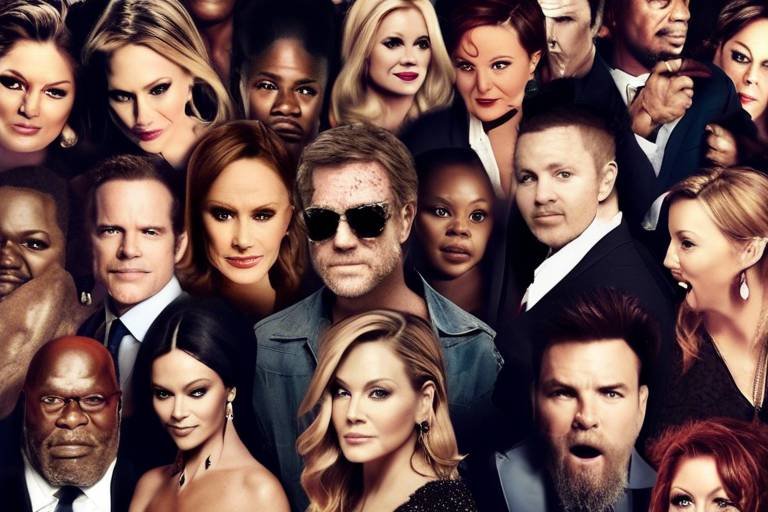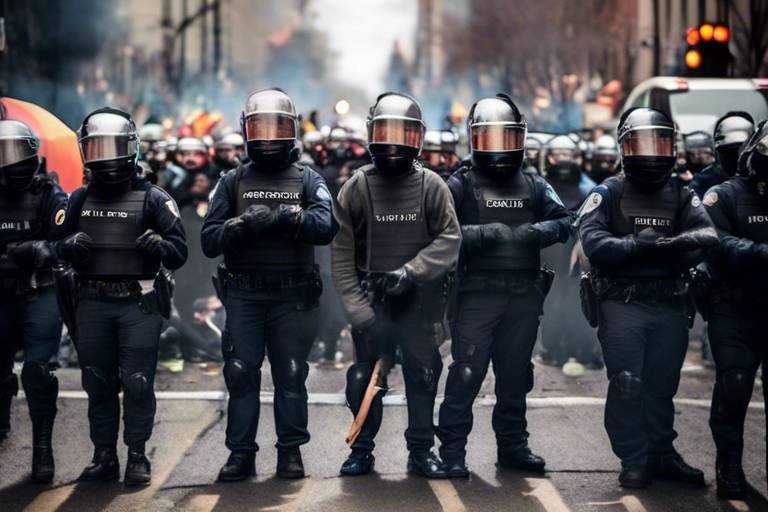Understanding the Ethics of Drawing Distinctions
In a world filled with complex choices and competing values, becomes essential. Every day, we are faced with decisions that require us to differentiate between right and wrong, fair and unfair, just and unjust. These distinctions are not merely academic; they resonate deeply in our personal lives, professional environments, and societal structures. When we make distinctions, we are not just categorizing options; we are also shaping the moral landscape of our communities.
Imagine you're at a crossroads, and each path represents a different ethical choice. The ability to discern which path to take is not only a reflection of your values but also a responsibility that impacts others. For instance, consider a hiring manager who must choose between two candidates. One candidate has a stellar resume but lacks interpersonal skills, while the other has a modest background but excels in teamwork. The decision made here is not just about qualifications; it has ethical implications that can affect the lives of both individuals and the company culture.
Moreover, ethical distinctions are crucial when it comes to issues like justice and equity. When we fail to recognize the nuances in ethical dilemmas, we risk oversimplifying complex situations, leading to decisions that may perpetuate inequality or injustice. For example, in legal contexts, laws might dictate a specific course of action, but ethical considerations often require us to look beyond the letter of the law. This is where the interplay between moral and legal distinctions becomes apparent, highlighting the need for a deeper understanding of ethics in our decision-making processes.
Ultimately, the ethics of drawing distinctions is about more than just making choices; it involves a commitment to fairness, integrity, and moral responsibility. It's about asking ourselves tough questions like: What is the right thing to do? or How will my decision affect others? By engaging with these questions, we can foster a more equitable society, where decisions are made with a sense of justice and compassion. As we delve deeper into this topic, we will explore various types of ethical distinctions, their implications, and the challenges we face in navigating these complex waters.
Understanding why ethical distinctions matter can help clarify moral responsibilities and guide actions in complex situations, fostering a more equitable society by ensuring that decisions are made with fairness and integrity.
- What are ethical distinctions? Ethical distinctions refer to the differences we make in assessing moral responsibilities and obligations in various situations.
- Why are ethical distinctions important? They help guide our actions, ensuring fairness and justice in decision-making processes.
- How do cultural perspectives influence ethical distinctions? Cultural backgrounds shape our understanding of morality, leading to diverse interpretations of ethical principles.
- What role does bias play in ethical decision-making? Bias can distort our perceptions, leading to unfair outcomes in ethical dilemmas.
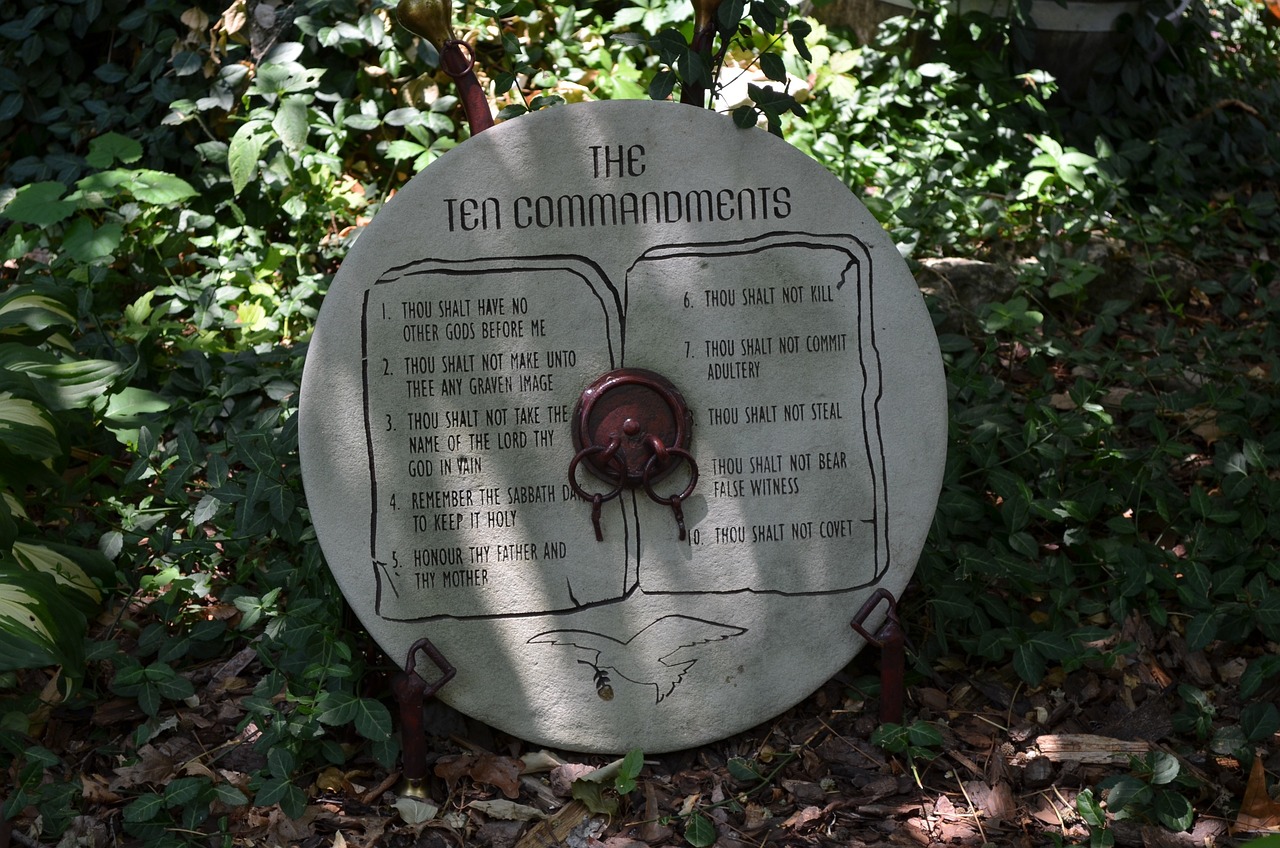
The Importance of Ethical Distinctions
Understanding why ethical distinctions matter can help clarify moral responsibilities and guide actions in complex situations. Imagine navigating a labyrinth where every turn represents a choice that could affect not just you but everyone around you. Ethical distinctions act as the guiding light, illuminating paths that lead to fairness and justice. Without this clarity, we risk stumbling blindly into decisions that could have dire consequences.
In our daily lives, we constantly face situations that require us to make choices based on ethical considerations. These distinctions are not just abstract concepts; they are the very foundation of a just society. When we recognize the importance of these distinctions, we foster a culture of integrity where decisions are made with careful thought rather than impulsive reactions. For example, consider how businesses operate. Ethical distinctions guide companies in their practices, influencing everything from hiring decisions to environmental responsibility. When a company chooses to prioritize ethical sourcing over profit margins, it sends a powerful message about its values and commitment to social responsibility.
Moreover, ethical distinctions help us navigate the murky waters of moral dilemmas. They encourage us to ask critical questions such as:
- What is the right thing to do?
- Who will be affected by my decision?
- Am I considering all perspectives?
These questions are essential for ensuring that our choices promote fairness and equity. By making ethical distinctions, we can weigh the potential outcomes of our actions and strive for solutions that benefit the greater good. This process not only enhances our personal integrity but also strengthens our communities.
Furthermore, ethical distinctions are vital in the context of social justice. They allow us to identify and challenge inequalities that may exist within our systems. For instance, when examining policies that disproportionately affect marginalized groups, ethical distinctions help us advocate for change. Recognizing the difference between what is legally permissible and what is ethically right can inspire movements that seek to rectify injustices.
In conclusion, the importance of ethical distinctions cannot be overstated. They serve as the compass that guides our moral compass in a world filled with complexity and ambiguity. By understanding and applying these distinctions, we can contribute to a more equitable society where fairness and integrity are not just ideals but practiced realities.
- What are ethical distinctions?
Ethical distinctions refer to the differences we recognize in moral principles that guide our decisions and actions. - Why are ethical distinctions important?
They help clarify our moral responsibilities and guide us in making fair and just decisions. - How can ethical distinctions influence businesses?
Businesses that prioritize ethical distinctions often engage in practices that reflect their values, impacting their reputation and success. - What role do ethical distinctions play in social justice?
They are crucial for identifying and challenging inequalities, helping to advocate for systemic change.

Types of Ethical Distinctions
When we talk about ethical distinctions, we are diving into a complex ocean of moral philosophy, legal frameworks, and cultural norms. Each type of ethical distinction serves as a compass, guiding us through the murky waters of right and wrong. It's essential to understand these distinctions because they shape our actions, influence societal norms, and ultimately determine how we interact with each other. Think of moral distinctions as the internal compass of our conscience, while legal distinctions are the rules set by society to maintain order. Cultural distinctions, on the other hand, are like the colorful threads woven into the fabric of our communities, influencing how we perceive and enact ethical principles.
To break it down further, let’s explore three primary types of ethical distinctions: moral, legal, and cultural. Each of these categories has its unique characteristics and implications:
| Type of Distinction | Description | Examples |
|---|---|---|
| Moral Distinctions | These are based on personal beliefs and values about right and wrong. | Honesty, integrity, compassion |
| Legal Distinctions | These are defined by laws and regulations established by society. | Traffic laws, criminal laws, civil rights |
| Cultural Distinctions | These are influenced by the traditions, customs, and values of a particular society. | Rituals, social norms, family roles |
Moral distinctions are often the most personal and subjective. They stem from our upbringing, experiences, and reflections on what we believe constitutes a good life. For instance, one individual might see honesty as a non-negotiable value, while another may prioritize loyalty over truthfulness in certain contexts. This subjectivity can lead to fascinating discussions about ethical dilemmas, where different moral compasses clash.
On the flip side, legal distinctions are more objective, as they are codified in laws and enforced by governing bodies. However, the law isn't always a perfect reflection of moral values. There are countless instances where legal actions are deemed unjust by many. For example, laws that permit discrimination based on race or gender can conflict with widely accepted moral beliefs about equality and fairness. This gap between law and morality poses significant challenges, often leading to social movements aimed at reforming legal standards.
Then we have cultural distinctions, which add another layer of complexity. Culture shapes our understanding of ethics through shared beliefs and practices. What is considered ethical in one culture may be seen as completely unacceptable in another. For example, practices such as arranged marriages or certain dietary restrictions are viewed through different ethical lenses depending on cultural backgrounds. This diversity enriches our global society but also complicates discussions about universal ethical standards.
In summary, understanding these types of ethical distinctions is crucial for navigating the moral landscape of our lives. Each type brings its unique perspective, and recognizing their interplay can help us make more informed decisions. Whether we are grappling with personal dilemmas, legal challenges, or cultural conflicts, having a solid grasp of these distinctions can empower us to act with greater awareness and responsibility.
- What is the difference between moral and legal distinctions? Moral distinctions are based on personal beliefs about right and wrong, while legal distinctions are defined by laws established by society.
- How do cultural distinctions influence ethical decision-making? Cultural distinctions shape our understanding of ethics through shared beliefs and practices, affecting how we interpret moral principles.
- Why is it important to understand ethical distinctions? Understanding ethical distinctions helps clarify moral responsibilities and guides actions in complex situations, fostering a more equitable society.
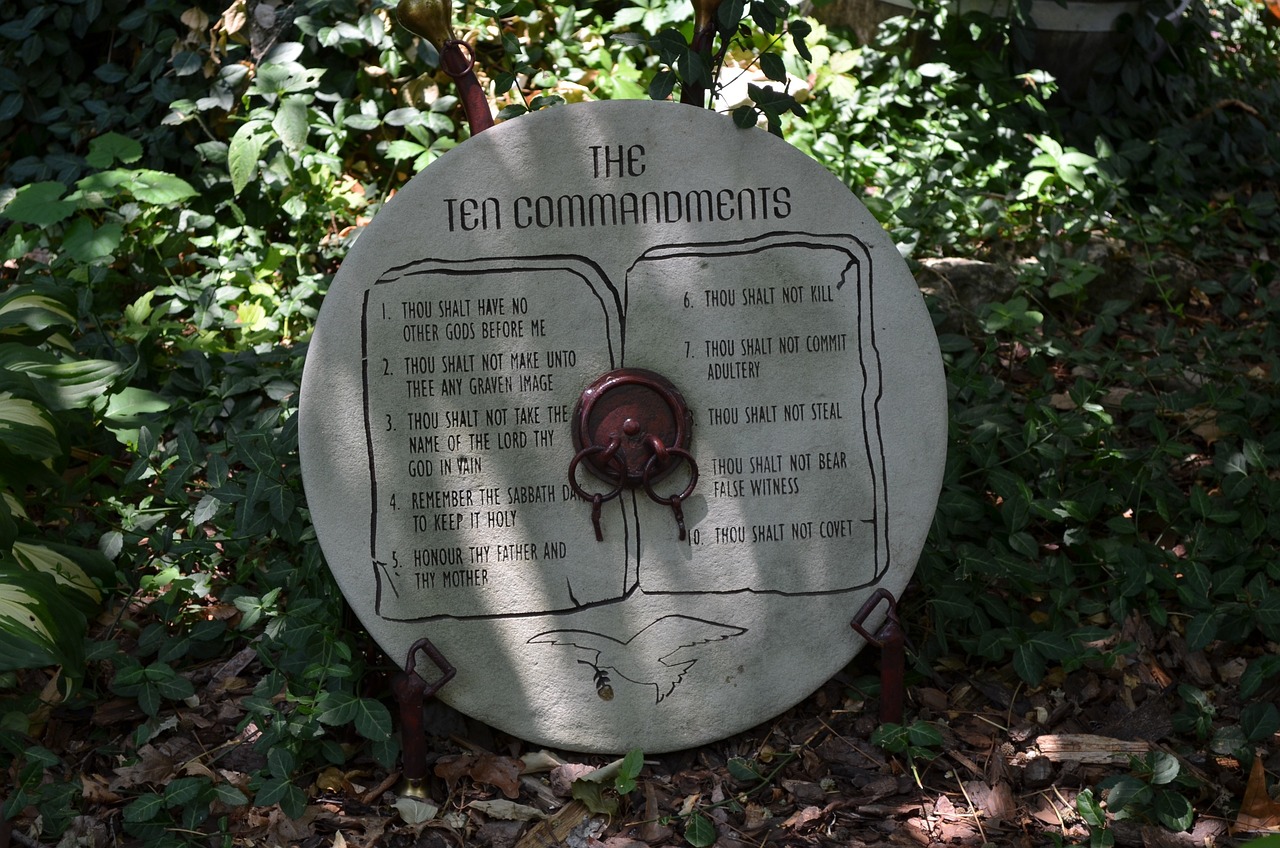
Moral vs. Legal Distinctions
When we talk about moral and legal distinctions, we’re diving into a fascinating yet complex realm that often sparks heated debates. At first glance, it might seem that laws and morals are two sides of the same coin, but in reality, they can diverge significantly. Think of it this way: laws are like the rules of a game, while morals are the personal values that guide how we play it. This distinction can lead to some intriguing scenarios where what is legal might not feel right, and what feels right might not be legal.
For instance, consider the case of whistleblowers. These individuals often expose illegal activities within organizations, risking their careers and sometimes even their safety. Legally, they may be protected under certain laws, but morally, they face a tumultuous decision: should they prioritize their duty to the law or their ethical obligation to expose wrongdoing? This brings us to the heart of the matter: the law is designed to maintain order and protect society, but it doesn’t always align with our personal sense of right and wrong.
To further illustrate this point, let’s examine a few key differences between moral and legal distinctions:
| Aspect | Moral Distinctions | Legal Distinctions |
|---|---|---|
| Definition | Principles concerning right and wrong behavior | Rules established by a governing body |
| Source | Personal beliefs, cultural norms | Legislation, statutes, regulations |
| Enforcement | Self-regulated, societal pressure | Governmental enforcement, legal consequences |
| Consequences of Violation | Guilt, social ostracization | Fines, imprisonment |
This table highlights that while laws are enforced by authorities, moral standards often rely on individual conscience and societal expectations. This can lead to situations where individuals feel compelled to act against the law in order to uphold their moral beliefs. A classic example is civil disobedience, where individuals intentionally break the law to protest against perceived injustices. Historical figures like Martin Luther King Jr. exemplified this when he advocated for civil rights, challenging laws that upheld racial segregation.
Moreover, the intersection of morality and legality can lead to significant societal changes. Over time, many laws have evolved as society's moral compass has shifted. For instance, laws regarding same-sex marriage have changed drastically in many parts of the world, reflecting a broader acceptance of LGBTQ+ rights. This evolution underscores the dynamic nature of both legal and moral distinctions, as they are often influenced by cultural shifts and collective societal values.
Ultimately, understanding the difference between moral and legal distinctions is crucial for navigating ethical dilemmas. It encourages us to reflect on our beliefs and the laws that govern us, prompting us to ask: Are we simply following the rules, or are we also considering the ethical implications of our actions? This critical reflection can lead to a more just and compassionate society, where laws are not only followed but are also aligned with our moral principles.
- What is the main difference between moral and legal distinctions?
Moral distinctions are based on personal beliefs about right and wrong, while legal distinctions are based on rules established by governmental bodies. - Can something be legal but still considered immoral?
Yes, there are many instances where actions are legal but may not align with societal or personal moral values. - How do societal changes affect laws?
Societal changes can lead to shifts in moral values, which in turn can influence the creation or amendment of laws to reflect these evolving beliefs.

Case Studies in Moral Distinctions
When we dive into the world of moral distinctions, real-world case studies serve as powerful illustrations of the complexities involved. These scenarios often highlight the tension between personal beliefs and societal expectations, showcasing how ethical decisions can ripple through communities. For instance, consider the famous case of Roe v. Wade. This landmark decision in the United States sparked intense debates about the moral implications of abortion. On one hand, proponents argue that a woman has the right to make decisions about her own body, which aligns with personal autonomy and ethical self-determination. On the other hand, opponents view the fetus as a life that deserves protection, raising profound questions about when life begins and the responsibilities that come with it.
Another compelling example is the whistleblower cases that have emerged in various industries. Take the case of Edward Snowden, who leaked classified information about government surveillance programs. Here, the moral distinction is stark: should one prioritize national security or the public's right to know? Snowden's actions sparked a global debate about privacy, ethics, and the responsibilities of government versus the rights of individuals. This case highlights how moral distinctions are not always clear-cut; rather, they often exist in a gray area where different values clash.
In addition to these high-profile cases, everyday situations also present moral dilemmas that require careful consideration. For example, a manager might face a decision about whether to promote an employee who has consistently met performance targets but has a history of unethical behavior. This situation pushes the manager to weigh the value of performance against the potential harm of endorsing unethical practices. It raises critical questions about integrity, fairness, and the long-term implications of their decision on workplace culture.
These case studies illustrate that moral distinctions are not just theoretical discussions; they have tangible impacts on real people and communities. They compel us to reflect on our values and the ethical frameworks that guide our decisions. As we analyze these scenarios, it becomes clear that understanding the nuances of moral distinctions can lead to more informed and compassionate choices in our lives.
In conclusion, the exploration of case studies in moral distinctions not only enriches our understanding of ethics but also emphasizes the need for ongoing dialogue. By engaging with these complex issues, we can cultivate a more profound sense of empathy and responsibility in our decision-making processes.
- What are moral distinctions?
Moral distinctions refer to the differences in ethical judgments about right and wrong, guiding our decisions and actions in various contexts. - Why are case studies important in understanding ethics?
Case studies provide real-world examples that illustrate the complexities and consequences of ethical decisions, helping us navigate moral dilemmas. - How do cultural perspectives influence moral distinctions?
Cultural backgrounds shape our understanding of ethics, leading to diverse interpretations of justice and fairness across different societies. - What role does bias play in ethical decision-making?
Bias can distort our perceptions and lead to unjust outcomes, making it crucial to recognize and address these influences in our ethical considerations.
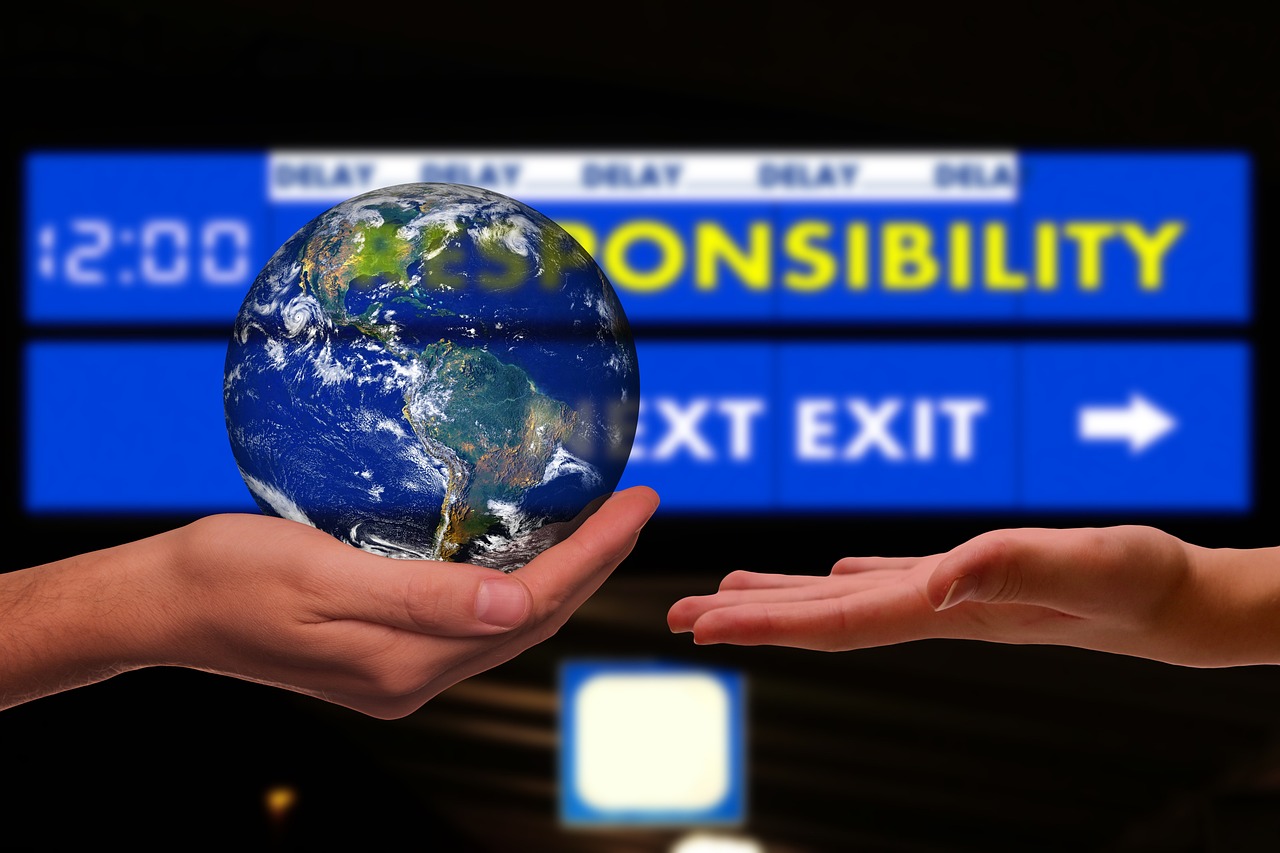
Legal Frameworks and Ethical Implications
When we dive into the intricate world of legal frameworks and their ethical implications, it’s like peeling back the layers of an onion—each layer revealing a deeper understanding of how laws interact with our moral compass. Legal systems are designed to maintain order and protect individuals within a society, but they often walk a fine line between what is legally permissible and what is ethically right. This intersection can lead to fascinating discussions and sometimes, frustrating dilemmas.
Take, for instance, the concept of justice. In theory, justice should be a universal principle, but in practice, it can vary significantly based on the legal framework in place. Laws are not always synonymous with morality; they can be influenced by cultural norms, historical contexts, and even political agendas. As a result, a law may be upheld in a court of law, yet still be viewed as morally questionable by the public. This misalignment raises critical questions: Should we follow the law blindly? Or should we allow our ethical beliefs to guide our actions, even if that means challenging existing legal structures?
Moreover, the implications of legal frameworks on ethical decision-making can be profound. For instance, consider the case of whistleblowers. These individuals often face a legal quandary: they may be legally protected for reporting wrongdoing, yet they can also encounter severe personal and professional repercussions. This highlights a crucial point: while laws may provide a safety net, they do not always ensure ethical safety. The emotional and psychological toll on whistleblowers can lead to a significant ethical dilemma: is it worth risking everything to uphold what one believes to be right?
In this context, it’s essential to recognize that laws can evolve, but ethical standards often lag behind. For example, historically, laws have permitted practices that many now view as unethical, such as discrimination based on race or gender. As society progresses, we see a shift in public sentiment that can eventually lead to legal changes. However, this transition is not always smooth, as it requires a collective re-evaluation of what is deemed acceptable. The question then becomes: how can we ensure that legal frameworks are not only reflective of current ethical standards but also proactive in promoting fairness and justice?
To illustrate this further, let’s examine a few key areas where legal frameworks and ethical implications collide:
| Area | Legal Framework | Ethical Implications |
|---|---|---|
| Whistleblowing | Protected under laws like the Whistleblower Protection Act | Potential backlash and moral dilemmas for the whistleblower |
| Corporate Responsibility | Regulations on environmental practices | Ethical obligation to prioritize sustainability |
| Criminal Justice | Mandatory sentencing laws | Potential for unjust outcomes based on circumstances |
As we navigate these complex waters, it’s crucial for individuals and organizations to engage in ongoing discussions about the ethical implications of the laws that govern us. This dialogue not only fosters a deeper understanding of our responsibilities but also encourages the development of legal frameworks that are more aligned with ethical standards. Ultimately, the goal should be to create a society where laws serve not only to regulate behavior but also to promote justice and equity.
In conclusion, understanding the relationship between legal frameworks and ethical implications is essential for fostering a just society. It challenges us to think critically about our laws and encourages us to advocate for changes that reflect our evolving understanding of morality. So, the next time you encounter a legal issue, take a moment to consider not just what the law states, but also what your ethical beliefs dictate. After all, in the intricate dance of law and ethics, it’s our moral compass that should guide us.
- What is the difference between law and ethics? Law refers to the system of rules that are enforced through social institutions, while ethics involves moral principles that govern a person's behavior.
- Can legal actions be unethical? Yes, there are instances where actions can be legally permissible but still considered unethical by societal standards.
- How can individuals influence legal frameworks? Individuals can influence legal frameworks through advocacy, voting, and participating in public discourse to raise awareness about ethical issues.
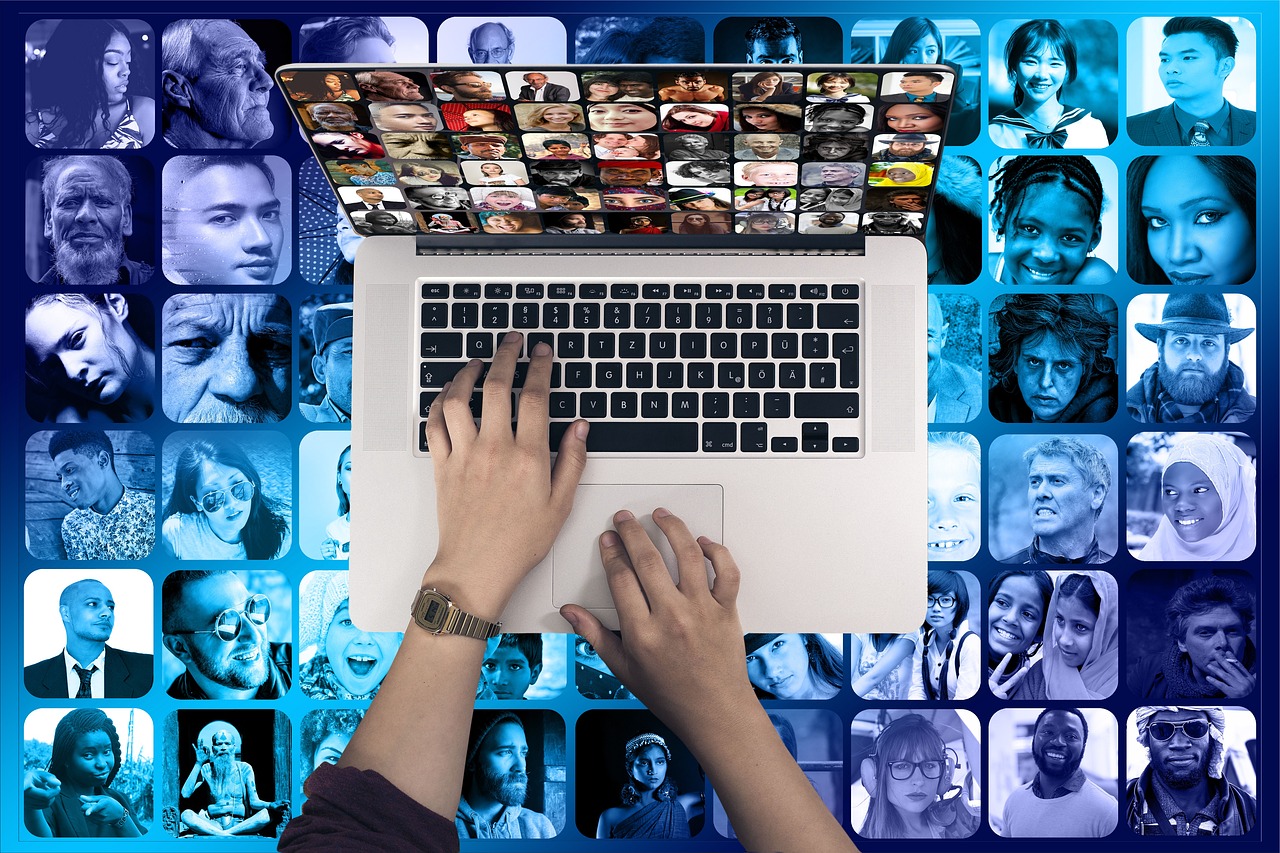
Cultural Perspectives on Distinctions
Cultural perspectives play a pivotal role in shaping our understanding of ethical distinctions. Every culture has its own set of values, beliefs, and practices that influence how individuals perceive right and wrong. For instance, what may be considered ethical in one culture could be viewed as immoral in another. This divergence often leads to a rich tapestry of ethical interpretations that can both enlighten and confuse. Think of it as a kaleidoscope; each turn offers a new perspective, revealing different patterns and colors that represent the diverse moral landscapes of humanity.
To illustrate, let’s consider two contrasting cultural approaches to business ethics. In some Western cultures, transparency and honesty are held in the highest regard, where companies are expected to disclose their financial dealings openly. Conversely, in certain Eastern cultures, the emphasis might be placed on harmony and relationships, where maintaining face and avoiding direct confrontation could take precedence over absolute transparency. This divergence can lead to misunderstandings and ethical dilemmas, especially in global business interactions. It raises the question: how do we navigate these complex waters without losing sight of our moral compass?
Moreover, cultural narratives and historical contexts significantly shape ethical distinctions. For example, indigenous cultures often have a collective understanding of ethics that emphasizes community and the interconnectedness of all beings. This contrasts sharply with more individualistic cultures, which may prioritize personal rights and freedoms. Such differences can lead to conflicts, particularly in discussions around environmental ethics, where indigenous practices may advocate for stewardship of the land, while industrialized nations may focus on exploitation for profit.
Furthermore, it’s essential to recognize that cultural perspectives on distinctions are not static; they evolve over time. Globalization, migration, and technological advancements have led to increased interaction between cultures, resulting in the blending of ethical perspectives. This cultural exchange can foster greater understanding and empathy, but it can also create tension when differing values clash. As we engage with diverse viewpoints, we must ask ourselves: how can we honor our own ethical beliefs while remaining open to the values of others?
In summary, cultural perspectives on distinctions are complex and multifaceted. They challenge us to think critically about our own beliefs and the beliefs of others. Understanding these differences is crucial for fostering dialogue and promoting a more inclusive society. By embracing the richness of cultural diversity, we can work towards a more nuanced understanding of ethics that respects and values the myriad ways in which people navigate moral dilemmas.
- What are ethical distinctions? Ethical distinctions refer to the differences in moral principles that guide decision-making in various contexts.
- How do cultural perspectives influence ethics? Cultural perspectives shape our understanding of right and wrong, leading to diverse interpretations of ethical principles.
- Why is it important to understand different cultural ethics? Understanding different cultural ethics fosters empathy and helps navigate conflicts in a globalized world.
- Can ethical perspectives change over time? Yes, ethical perspectives can evolve due to globalization, social movements, and changing societal values.

Challenges in Making Ethical Distinctions
Making ethical distinctions is no walk in the park. In fact, it can often feel like navigating a minefield, where one wrong step could lead to significant consequences. The world is brimming with complex scenarios that demand our attention, and the choices we make can ripple through our lives and those of others in unforeseen ways. As we grapple with these decisions, we encounter several challenges that complicate our ability to discern right from wrong.
One of the most significant challenges is the presence of bias and subjectivity in our ethical decision-making processes. It's like wearing tinted glasses; our perceptions of what is just and fair can be skewed by personal experiences, cultural backgrounds, and societal norms. This subjectivity can cloud our judgment, making it difficult to arrive at decisions that are genuinely equitable. For instance, consider a hiring process where a manager unconsciously favors candidates who share similar backgrounds or interests. Such biases can lead to a lack of diversity and perpetuate inequality, ultimately undermining the integrity of the decision-making process.
Additionally, the complexities of context play a crucial role in ethical distinctions. What may be considered acceptable in one culture or situation can be viewed as unethical in another. This disparity can lead to moral conflicts, especially in a globalized world where interactions among diverse cultures are common. For example, business practices that are standard in one country may be frowned upon in another, creating dilemmas for multinational corporations trying to navigate these waters. The challenge lies in balancing respect for cultural differences while adhering to universal ethical principles.
Moreover, the consequences of misguided distinctions cannot be overstated. Poor ethical decisions can result in long-lasting impacts, not just for individuals but for entire communities. When we fail to recognize the implications of our choices, we risk undermining trust and justice in society. Take, for instance, the case of environmental regulations. When companies prioritize profit over ethical considerations, the repercussions can be devastating—polluted air, contaminated water, and communities left to deal with the fallout. This highlights the importance of ethical awareness and the need for a robust framework that guides decision-making.
In light of these challenges, it's essential to cultivate a mindset of critical thinking and self-awareness. By acknowledging our biases and actively seeking diverse perspectives, we can enhance our ethical decision-making abilities. Engaging in open dialogues and fostering an environment where differing opinions are valued can illuminate the complexities of ethical distinctions. It's about creating a culture where ethical considerations are at the forefront of our decisions, allowing us to navigate the murky waters of morality with confidence and clarity.
- What are ethical distinctions? Ethical distinctions refer to the differences in moral principles that guide our understanding of right and wrong in various contexts.
- Why is it challenging to make ethical distinctions? Challenges arise due to biases, cultural influences, and the complexities of context, which can distort our perceptions and lead to unjust outcomes.
- How can we improve our ethical decision-making? By fostering critical thinking, self-awareness, and engaging in open dialogues, we can enhance our ability to make fair and just ethical distinctions.

Bias and Subjectivity in Ethical Decisions
When we talk about ethical decisions, it’s essential to recognize that our choices are often influenced by bias and subjectivity. These factors can cloud our judgment, leading us to make decisions that may not align with our ethical standards or the greater good. Imagine you're at a crossroads, and while one path is clearly marked with signs of fairness and justice, the other is obscured by personal feelings and preconceived notions. Which way do you choose? This metaphor highlights the struggle many face when navigating ethical dilemmas.
Bias can stem from various sources, including our upbringing, cultural background, and personal experiences. For instance, someone raised in a community that values individual freedom might view ethical situations through a lens that prioritizes personal choice over collective responsibility. Conversely, another individual from a collectivist culture may emphasize the importance of community welfare, leading to differing ethical conclusions. This subjectivity can create a disconnect in how ethical standards are interpreted and applied.
To illustrate this concept, let’s consider a scenario in a workplace setting. Imagine a manager faced with the decision of promoting an employee. If the manager has a bias towards individuals who share similar interests or backgrounds, they might overlook a more qualified candidate who brings diversity and unique perspectives to the team. This not only affects the morale of the team but also perpetuates a cycle of inequity and missed opportunities for growth.
Here’s a quick table summarizing the types of biases that can influence ethical decisions:
| Type of Bias | Description |
|---|---|
| Confirmation Bias | The tendency to search for, interpret, and remember information that confirms one’s preexisting beliefs. |
| Affinity Bias | The inclination to favor people who are similar to ourselves in some way. |
| Attribution Bias | The tendency to attribute one’s own successes to internal factors while blaming external factors for failures. |
Recognizing these biases is the first step toward making more ethical decisions. It requires a level of self-awareness and a willingness to question our own motives. Are we making decisions based on facts, or are we allowing our biases to dictate our actions? This introspection can be uncomfortable, but it is crucial for fostering a fairer decision-making process.
Moreover, it’s important to engage in open discussions about ethics in various contexts. By sharing perspectives and challenging each other’s viewpoints, we can mitigate the effects of bias and work towards a more balanced understanding of ethical issues. This collaborative approach not only enhances our decision-making abilities but also promotes a culture of accountability and transparency.
In conclusion, while bias and subjectivity are inherent in human nature, acknowledging their existence is key to navigating ethical decisions more effectively. By striving for objectivity and embracing diverse viewpoints, we can enhance our moral compass and contribute to a more just society.
- What is bias in ethical decision-making?
Bias refers to the inclination to favor one perspective or outcome over others, often leading to unfair or unjust decisions. - How can I recognize my biases?
Self-reflection, seeking feedback from others, and being open to different viewpoints can help you identify your biases. - Why is subjectivity a problem in ethics?
Subjectivity can distort our understanding of what is right or wrong, leading to inconsistent and potentially harmful decisions.
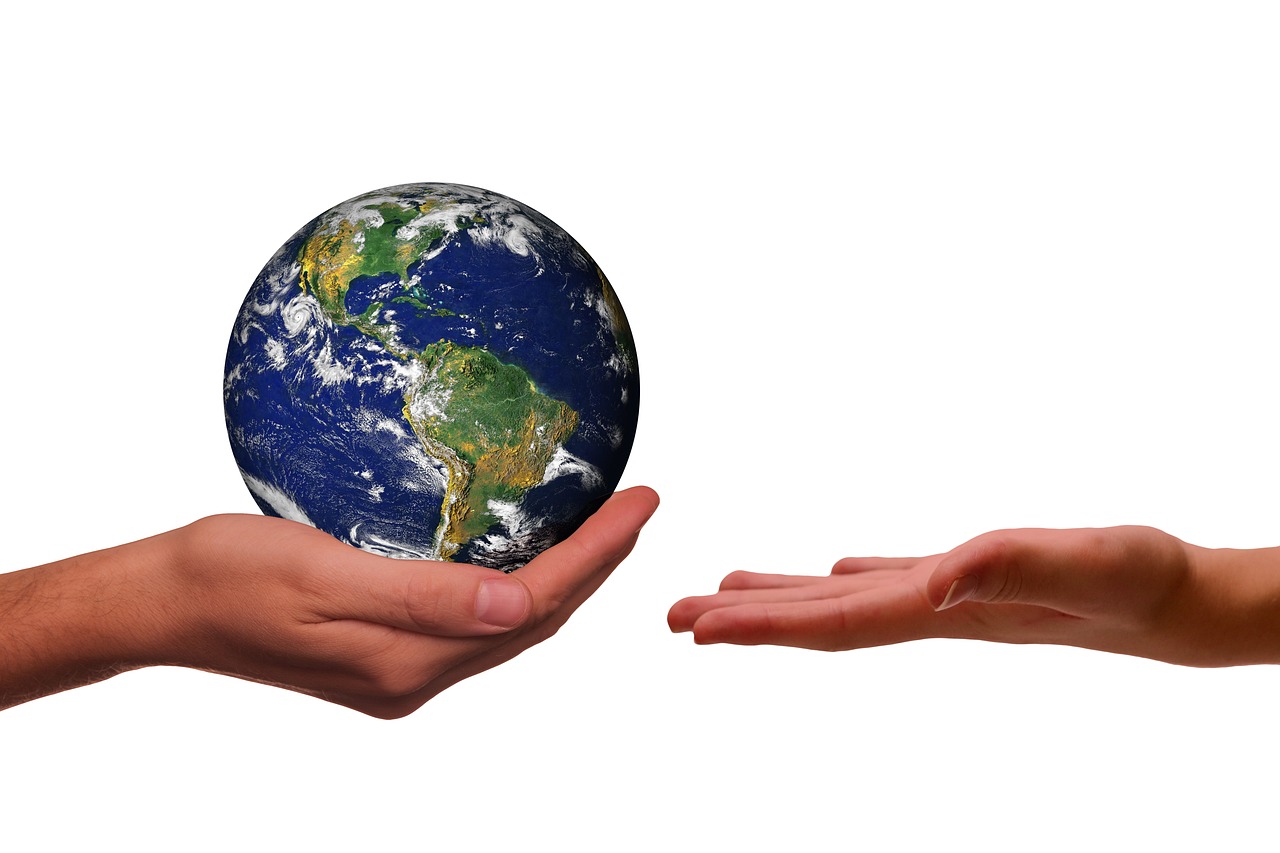
Consequences of Misguided Distinctions
Making ethical distinctions is not merely an academic exercise; it has real-world implications that can resonate deeply within our communities and individual lives. When distinctions are misguided, the consequences can be severe and far-reaching. For instance, consider a scenario where a hiring manager makes decisions based on biased perceptions rather than objective qualifications. This not only affects the individuals who are unjustly overlooked but can also lead to a toxic workplace culture that stifles diversity and innovation. The ripple effects of such misguided distinctions can erode trust within the organization and diminish morale among employees.
Moreover, the implications extend beyond individual cases to societal levels. Think about how misguided distinctions in law enforcement practices can perpetuate systemic injustices. For example, racial profiling can lead to disproportionate targeting of specific communities, resulting in a cycle of mistrust between law enforcement and the public. Such scenarios highlight the critical need for ethical awareness in decision-making processes. When distinctions are made without careful consideration of their ethical implications, we risk creating environments where injustice flourishes.
To illustrate the consequences further, let's examine some key areas impacted by misguided distinctions:
| Area | Potential Consequences |
|---|---|
| Employment | Discrimination, loss of talent, and decreased workplace morale. |
| Law Enforcement | Increased community tensions, erosion of trust, and potential civil unrest. |
| Healthcare | Unequal access to services, health disparities, and negative health outcomes. |
| Education | Widening achievement gaps and perpetuation of socioeconomic divides. |
Each of these areas demonstrates how misguided distinctions can lead to a cascade of negative outcomes, affecting not just individuals, but entire communities. Recognizing these consequences is crucial for fostering a more equitable society. It emphasizes the importance of ethical considerations in our daily decision-making processes. By being more mindful of the distinctions we make, we can work towards a future where fairness and justice prevail, allowing us to build stronger, more inclusive communities.
- What are ethical distinctions? Ethical distinctions refer to the differences we make in moral judgment that influence our decisions and actions in various contexts.
- Why are misguided distinctions harmful? Misguided distinctions can lead to unfair treatment, perpetuate injustices, and create environments where trust is eroded.
- How can we improve our decision-making processes? By being aware of our biases, considering the ethical implications of our choices, and striving for fairness in our judgments.
- What role does culture play in ethical distinctions? Cultural perspectives shape our understanding of right and wrong, influencing how societies implement moral principles.
Frequently Asked Questions
- What are ethical distinctions, and why are they important?
Ethical distinctions refer to the differences between various moral principles that guide our actions and decisions. They are crucial because they help clarify our moral responsibilities, ensuring that we make fair and just choices in complex situations. By understanding these distinctions, we contribute to a more equitable society where decisions are made with integrity.
- How do moral and legal distinctions differ?
Moral distinctions are based on personal beliefs about right and wrong, while legal distinctions are established by laws and regulations. This difference often leads to situations where legal actions may not align with moral beliefs, highlighting the complexities of justice. For example, something might be legal but still feel ethically wrong to many individuals.
- Can you provide examples of challenges faced in making ethical distinctions?
Absolutely! One significant challenge is bias, which can cloud our judgment and lead to unfair decisions. Additionally, subjective interpretations of situations can complicate how we view ethical dilemmas. These challenges require us to engage in critical thinking and self-reflection to navigate the murky waters of ethical decision-making.
- What are the consequences of misguided ethical distinctions?
Misguided distinctions can have serious repercussions, such as creating injustice and eroding trust within communities. Poor ethical decisions can lead to harm for individuals and groups, creating a ripple effect that undermines social cohesion and fairness. It's essential to be aware of these potential outcomes to foster better decision-making.
- How do cultural perspectives influence ethical distinctions?
Cultural influences shape our understanding of ethics by providing different frameworks through which we interpret moral principles. This can lead to diverse perspectives on what is considered just or fair, affecting how societies implement ethical standards. Understanding these cultural differences is key to promoting dialogue and mutual respect in a globalized world.















